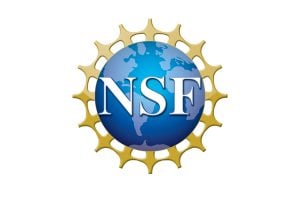
The National Science Foundation has awarded Graduate Research Fellowships to 17 Hopkins engineers. They have been selected for their outstanding work in science, technology, engineering, or math fields.
The NSF Graduate Research Fellows program is the oldest graduate fellowship of its kind. Fellows receive three years of financial support in the form of an annual stipend of $37,000 and a $12,000 cost of education allowance for tuition and fees paid to the institution. Fellows also have access to professional development opportunities while they conduct their research.
Hopkins Engineering’s 2023 NSF Graduate Research Fellows are:
Noah Barnes is a PhD student in mechanical engineering and is currently a member of the Haptics and Medical Robots Laboratory, which studies the human perception of touch especially as it relates to human and robot interactions or collaborations.
Stephanie Brown is a senior undergraduate student studying chemical and biomolecular engineering, as well as applied mathematics and statistics. She works in the Carsten Prasse Laboratory and the Howard Fairbrother Laboratory to study the interactions of plastics, microplastics, and the environment.
Michael Chungyoun is a PhD student in chemical and biomolecular engineering who has been working on integrating artificial intelligence in classrooms, beginning with Baltimore City Public Schools.
Caroline Ghio is a PhD student in biomedical engineering who is developing and applying new computational and molecular engineering tools that record gene expression and chromatin state during development and disease progression.
Mia Grahn is an undergraduate senior in chemical and biomolecular engineering. She is currently conducting digital pathology research under Ashley Kiemen and Denis Wirtz, focusing on a 3D restructuring of pancreas tissue to better understand the onset of Type 1 diabetes and pancreatic cancer.
Curtis Haas is a PhD student in mechanical engineering who was the inaugural recipient of the Stanley Corrsin Graduate Fellowship in Fluid Dynamics.
Jesse Haworth is a PhD student at the Johns Hopkins Laboratory for Computation Sensing and Robotics who has worked in Russell Taylor’s Computer Integrated Interventional Systems lab and Axel Krieger’s Intelligent Medical Robotics Systems and Equipment lab.
Savannah Hays is a PhD student in electrical and computer engineering, studying in the Image Analysis and Communications Lab to fuel her interest in medical image analysis.
Manav Jain is a PhD student studying biomedical engineering who works in the labs of Jordan Green and Jonathan Schneck to design and test polymeric materials that can engineer immune cell function.
Max Kerensky is a PhD student studying biomedical engineering and working in the HEPIUS Innovation Lab to create targeted medical solutions for the spinal cord and beyond.
Elaine Nagahara is a senior undergraduate student studying materials science and engineering.
Stephanie Nolen is a PhD candidate in biomedical engineering, focused on optics and biophotonics. Her research in Ji Yi’s lab fuels her passion for applying engineering and physics to pressing health problems.
Pierce Perkins is a PhD student studying biomedical and medical engineering.
Linus Wang is a PhD student studying biomedical engineering.
Emma Whitehead graduated with a bachelor’s degree in biomedical engineering in 2022 and currently works at the Grayson Lab for Craniofacial and Orthopedic Tissue Engineering, where she has worked in various capacities since her freshman year.
Hannah Yamagata is a senior undergraduate student studying biomedical engineering. Yamagata and her team were runners-up in the Collegiate Inventors Competition for their design of a more comfortable brace to treat kids born with clubfoot.
Xin Zhang is a senior undergraduate student studying chemical and biomolecular engineering, working in the Brandon Bukowski Lab and Tyrel McQueen Lab studying next-generation quantum materials for spintronic applications.